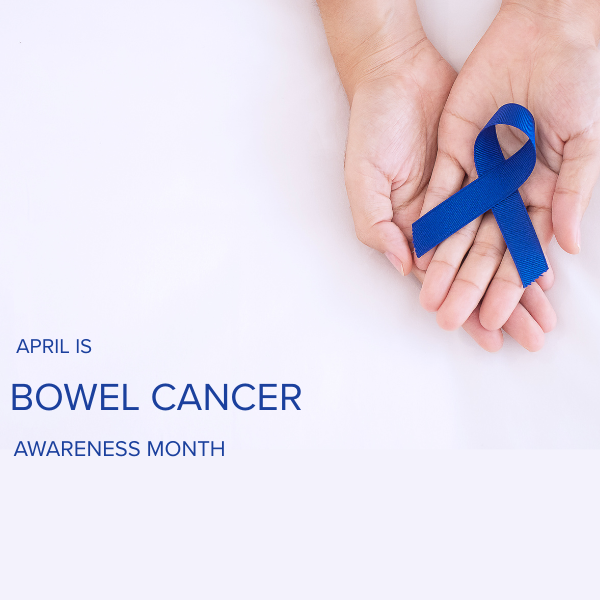Martha’s Rule
Bone Cancer Negligence Claims.
Bone cancer, also known as sarcoma, is a rare but very aggressive form of cancer, accounting for around one in every 500 cancer cases.
It occurs as the result of an abnormal cell growth within the bone, and most commonly affects children, adolescents, and young adults.
Receiving a diagnosis of bone cancer can be an incredibly worrying time for you and your family, especially so if your cancer was initially misdiagnosed as a different condition and your treatment was delayed. The aggressive nature of bone cancer means that any delay in diagnosing and treating it can have a devastating effect on your long term prognosis.
If your bone cancer misdiagnosis occurred as a result of negligent treatment from a medical professional, you may be entitled to claim compensation. For example, your GP failed to refer you to a specialist, or your oncologist failed to carry out the necessary tests or misinterpreted your test results. Each of these may be grounds to make a claim.
At Lanyon Bowdler, we have helped many clients in similar positions to pursue legal action against the medical professional or establishment responsible for misdiagnosing their bone cancer and causing undue suffering. To find out more about how we can help you to seek justice and receive compensation, please contact us.
Can I make a Claim for Bone Cancer Negligence?
All medical professionals owe their patients a duty of care, and a breach in that duty of care which leads to unnecessary pain and suffering can constitute negligence. There are several ways in which a negligence can occur, including:
- Your GP fails to take your symptoms seriously
- Your GP fails or delays to refer you to a specialist
- Your specialist does not carry out the appropriate tests
- Your test results are misread or misinterpreted
- You are prescribed the wrong treatment plan
- Your condition is diagnosed as something else
This list is not exhaustive, and any kind of medical malpractice that leads to a worsening of your condition can provide grounds for legal action.
It is crucial to have the support of expert solicitors to ensure you have a strong case, and receive all the compensation you deserve for your pain and suffering.
At Lanyon Bowdler, we understand the physical and mental suffering that you may be going through as a result of your misdiagnosis, and we can help guide you through the legal process and ensure you receive the maximum amount of compensation under the law. In addition to the legal case, we can also help you to gain access to therapies and treatments to aid your journey to recovery, so please don’t hesitate to contact us for more information.
Our Bone Cancer Claims Expertise
Lanyon Bowdler is a specialist firm of Medical Negligence Solicitors with years of experience supporting clients in cancer negligence claims, including those involving bone cancer misdiagnosis. Our expertise in this field is recognised by national organisations, peers, and clients across the UK.
The Medical Negligence Team is recognised in Tier 1 for the West Midlands in the 2025 edition of the Legal 500, which states ‘The ‘efficient and pragmatic’ team at Lanyon Bowdler adopts a ’truly personal approach’ when dealing with cases involving birth, brain and fatal claims. It also frequently handles high-value cases relating to amputations and spinal injuries’.
Chambers UK 2025 rank the department in Band 1 for the Midlands and states ‘an impressive practice group with a growing presence across the West Midlands. The team offers specialist advice across the full gamut of clinical negligence mandates, with particular experience in cases of surgical error, delayed diagnosis and failure to supervise those at risk of suicide. The firm is additionally skilled in cases relating to post-surgical negligence, brain injury and fatal claims.’
Listen here to Beth Heath and a former colleague from the Clinical Negligence team talk about the delay in diagnosis of Cancer, using fictitious, but typical cases to illustrate the challenges people are facing.
Your Bone Cancer Compensation questions answered
There are several different types of bone cancer, and each type requires a slightly different treatment plan, so it is important that diagnostic tests are performed accurately in order to determine the type of bone cancer and the correct treatment needed.
The different types of bone cancer include:
- Osteosarcoma – This is the most common type of bone cancer, particularly amongst children and young adults, and it generally affects the long bones in the arms and legs.
- Chondrosarcoma – This type of bone cancer is caused by a tumour that forms from cartilage-producing cells, and typically affects the bones in the arms, legs, or pelvis.
- Ewing’s sarcoma – This cancer typically affects children and young adults, and occurs in the bones of the legs, arms, and pelvis.
- Spindle cell sarcoma – This type of bone cancer is rare, accounting for around 2 to 5% of all bone cancer cases. It is caused by a soft tissue tumour found in the bones of the legs, arms, and pelvis.
- Myeloma cancer – This type of cancer affects the bone marrow, typically leading to weakening of the bones, increasing their susceptibility to fracture.
In the majority of cases, bone cancer affects the larger bones of the body such as those found in the arms, legs, and pelvis. However, although rare, bone cancer can also affect the ribs and some of the smaller bones in the body such as those in the hand.
Bone cancer symptoms typically vary from patient to patient, and they can differ depending on which bones in the body are affected and what stage the cancer is at. However, some of the key “red flag” symptoms to look out for include:
- Discolouration of the skin around the bone and joint area
- Swelling or inflammation of the bone and joint area
- Limited ability or inability to move a bone e.g. in the leg or arm
- Unexplained bone fractures
- Unintentional and severe weight loss
- Irregular and unexplained night sweats
- High temperature and excessive sweating
- Lumps on the bone
- General fatigue
- Pain that worsens over time
If you are suffering from any of the above symptoms, it is always advisable to see your GP as soon as possible. Bone cancer is rare, so it may be that your symptoms point initially to a different condition. However, without diagnostic testing, it is impossible for doctors to know exactly what is causing your symptoms.
The symptoms of bone cancer can sometimes be similar to those of other conditions, so it is possible that a doctor may misdiagnose bone cancer initially in some cases. Any delay in diagnosis leads to a delay in treatment, which can cause the cancer to spread and progress.
Bone cancer can be misdiagnosed for several other conditions, including:
- Arthritis – Bone cancer can cause pain, swelling, and mobility issues which are also the key symptoms of arthritis. However, any kind of persistent pain should be investigated further to rule out other causes.
- Growing pain – Children often experience pain in their bones as they grow. However, growing pains don’t usually last very long, so any persistent pain in the bones requires further investigation.
If your bone cancer has been misdiagnosed and you have been caused undue pain and suffering you may be entitled to make a claim for compensation. Our team of experienced medical negligence solicitors are available to answer any questions you may have.
Bone cancer occurs when cells within a bone begin to act abnormally and multiply uncontrollably, resulting in a mass known as a tumour. In some cases the tumour may remain benign, while in others it may become malignant and cancerous.
Doctors are not sure exactly what causes cells to multiply abnormally in some people, but they have identified a number of risk factors that could potentially increase the likelihood of bone cancer developing, including:
- Radiation – Patients who have previously been exposed to radiation, such as at work or due to radiotherapy treatment for cancer, may have an increased risk of forming cancerous cells.
- Other bone conditions – There are some non-cancerous bone conditions that may increase the likelihood of bone cancer developing, including Paget’s disease and Ollier’s disease.
- Genetic conditions – Certain rare genetic conditions such as Li-Fraumeni Syndrome can increase the risk of bone cancer developing, as well as other types of cancer.
- Hereditary retinoblastoma – This rare form of eye cancer shares the same inherited gene that can also lead to bone cancer, so those who developed retinoblastoma in childhood may have a predisposition to bone cancer.
Falling into one of these at-risk categories doesn’t necessarily mean that a person will definitely develop bone cancer. However, if any of the above apply to you and you also develop symptoms of bone cancer, your GP has a duty of care to ensure that you are referred for urgent testing, and a failure to do so could constitute medical negligence.
The first stage in any bone cancer diagnosis is usually a visit to your GP as soon as you begin to experience symptoms such as bone pain, inflammation, and mobility issues. Your GP has a duty of care to take your symptoms seriously and carry out an examination of the affected area, as well as discussing your family and medical history. If they are concerned it could be cancer, they should refer you urgently to a specialist for further testing, which may include the following:
- X-ray
- Bone scan
- Computerised Tomography (CT)
- Magnetic Resonance Imaging (MRI)
- Positron Emission Tomography (PET)
- Bone marrow biopsy
If the presence of cancer is confirmed, a biopsy of the affected bone or bone marrow is necessary in order to determine what type of bone cancer is present, and the staging of the same. Armed with this information, your doctors can then decide on an appropriate course of treatment.
The treatment for bone cancer varies from patient to patient, depending on a number of factors including, the staging of the cancer, which bone/s are affected; and the general health of the patient. A multidisciplinary team of doctors will usually work together to decide upon a suitable treatment plan for you, which will typically involve a combination of the following treatment options:
- Surgery – The bone, or part of the bone, affected by the cancer may be removed (an “osteostomy”). In most cases, the patient’s limbs can be spared, but in around 10% of cases it is necessary to amputate the full limb. This is usually the case when the cancer has spread into the surrounding nerves or blood vessels, or where limb-sparing surgery is not possible due to the location of the cancer.
- Radiotherapy – This method of treatment is often used alongside surgery to shrink the tumour beforehand, and target any remaining cancer cells after the surgery. Radiotherapy is also used for symptom relief in patients where a cure is not possible.
- Chemotherapy – This is often used in conjunction with both surgery and radiotherapy in order to shrink the size of the tumour, and relieve symptoms in cases of incurable bone cancer.
- Targeted drugs – Some types of bone cancer respond to certain drugs; for example, osteosarcoma patients may be given mifamurtide alongside other forms of treatment in order to prevent the cancer from returning.
If you have received inadequate treatment for bone cancer, or your treatment was delayed due to a misdiagnosis of your condition, causing your condition to progress unduly, you may be able to claim compensation. Our medical negligence experts can offer advice and guidance as to whether you have a claim.
What our clients say.
Contact our Bone Cancer Negligence Solicitors
Lanyon Bowdler’s specialist medical negligence lawyers are here to support you through your bone cancer negligence claim. We understand the impact a cancer diagnosis can have on both those affected and their family. It can be traumatic to suffer because of a misdiagnosis or late diagnosis, resulting in your condition becoming more advanced. If you believe you have suffered because of the negligence of a medical professional or establishment, you may be entitled to make a bone cancer negligence claim.
Our specialist team of lawyers can help you pursue your claim and get the highest possible amount of compensation that you are entitled to under the law. We are committed to providing exceptional levels of client care and will work closely and considerately with you to help find the best outcomes and help to get your life back on track.
We have offices in Shrewsbury, Telford, Oswestry, Ludlow, Hereford, Bromyard and Conwy, where our friendly, knowledgeable staff will be happy to welcome you for an initial chat about your requirements.
Meet the team.
Case studies.
Latest knowledge.
Our awards and accolades.
Get in touch.
"*" indicates required fields

 Back
Back





























 Blog
Blog


 Case Study
Case Study












